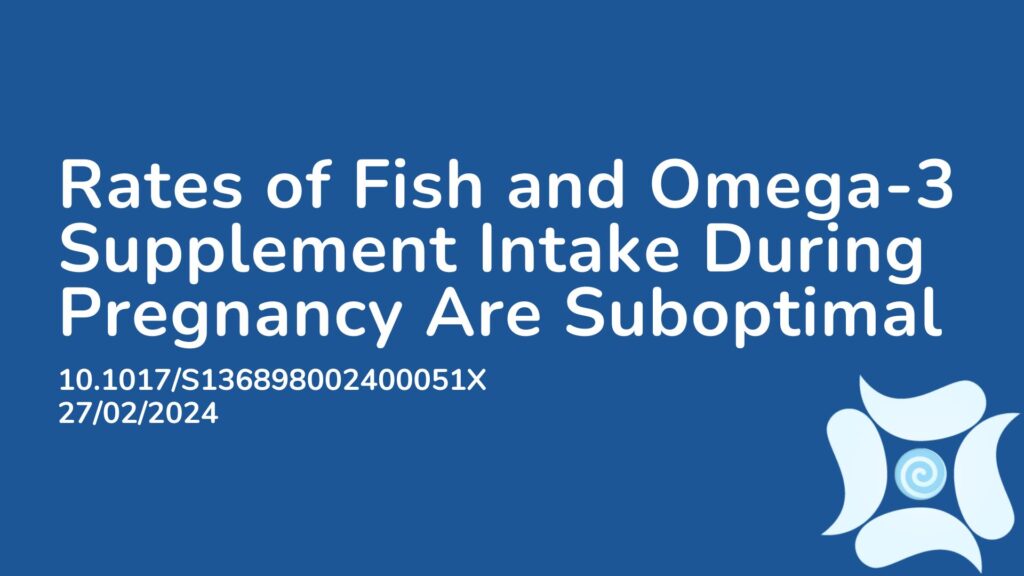Summary:
The aim of this paper was to explore factors associated with the intake of fish or omega-3 supplements during pregnancy. A total of 10,800 pregnant women provided information on fish consumption, while 12,646 provided information on supplement use. Overall, the findings showed that almost 25% of participants reported never or rarely eating fish, 40.1% ate fish less than once a week, 22.1% consumed it 1-2 times per week, and 13.2% ate it more than twice per week. Being overweight was also associated with a lower likelihood of fish consumption. Only 16.2% reported taking omega-3 supplements, with higher usage among older individuals, those with higher education, lower BMI, and regular fish consumption. The authors therefore concluded that a significant portion of pregnant women (almost 25%) in this extensive dataset rarely or never consumed fish during pregnancy, and omega-3 supplement use was infrequent, even among those who did not regularly eat fish. Given that there are strong public health recommendations in favor of consuming omega-3 fatty acids during pregnancy due to its benefits on offspring health, this is a concerning number.
Abstract:
Objective: Omega-3 (n-3) fatty acid consumption during pregnancy is recommended for optimal pregnancy outcomes and offspring health. We examined characteristics associated with self-reported fish or omega-3 supplement intake.
Design: Pooled pregnancy cohort studies. Setting: Cohorts participating in the Environmental influences on Child Health Outcomes (ECHO) consortium with births from 1999-2020.
Participants: A total of 10,800 pregnant women in 23 cohorts with food frequency data on fish consumption; 12,646 from 35 cohorts with information on supplement use.
Results: Overall, 24.6% reported consuming fish never or less than once per month, 40.1% less than once a week, 22.1% 1-2 times per week, and 13.2% more than twice per week. The relative risk (RR) of ever (vs. never) consuming fish was higher in participants who were older (1.14, 95% CI: 1.10, 1.18 for 35-40 vs. <29 years), were other than non-Hispanic White (1.13, 95% CI: 1.08, 1.18 for non-Hispanic Black; 1.05, 95% CI: 1.01, 1.10 for non-Hispanic Asian; 1.06, 95% CI: 1.02, 1.10 for Hispanic), or used tobacco (1.04, 95% CI: 1.01, 1.08). The RR was lower in those with overweight vs. healthy weight (0.97, 95% CI: 0.95, 1.0). Only 16.2% reported omega-3 supplement use, which was more common among individuals with a higher age and education, a lower BMI, and fish consumption (RR 1.5, 95% CI: 1.23, 1.82 for twice-weekly vs. never).
Conclusions: One-quarter of participants in this large nationwide dataset rarely or never consumed fish during pregnancy, and omega-3 supplement use was uncommon, even among those who did not consume fish.
Article Publication Date: 27/02/2024
DOI: 10.1017/S136898002400051X



